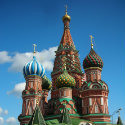
Russia's largest mobile operator, MTS, has joined forces with its domestic peers in what appears to be a concerted effort to get 5G up and running in the market.
Back in 2017, two of Russia's biggest operators, MegaFon and Rostelecom, joined forces in an attempt to overcome the huge cost challenge of building a 5G network in the Russian market. Around a year later, they formed a joint venture that is now called New Digital Solutions, which has the stated aim of helping to build a common 5G network.
Vimpelcom (Beeline), the Russian operator owned by the VEON group, then joined the venture in 2021. Now, according to an Interfax report, MTS has also taken a 25% stake to match the holdings of the other three players.
Russia's 5G network deployment was already lagging behind the rest of the world and the situation has been further exacerbated by the country's invasion of Ukraine. A number of telecoms vendors have ceased trading in the country because of the Ukraine war, and international sanctions are in place.
Want to know more about 5G? Check out our dedicated 5G content channel here on Light Reading.
It seems that Russian operators are taking 5G into their own hands, although details of what they plan to do and when are thin on the ground.
According to Interfax, the JV aims to test 5G for electromagnetic compatibility, conduct research on frequencies for building 5G networks, and implement measures to free up spectrum from existing applications, including but not limited to the bands 694MHz-790MHz, 3.4GHz-3.8GHz, 4.4GHz-4.99GHz and 24.25GHz-29.5GHz.
The news agency further noted that in November 2021, the State Commission for Radio Frequencies (SCRF) allocated bands to New Digital Solutions in the 4400MHz-4990MHz range for testing 5G technology for two years. However, the commission did not allow the JV to test the bands 4555-4630 MHz and 4990-5000 MHz, which are used by Russian security agencies.
Related posts:
— Anne Morris, contributing editor, special to Light Reading
Read more about:
EuropeAbout the Author(s)
You May Also Like












